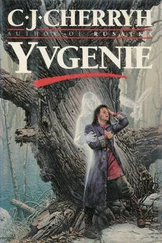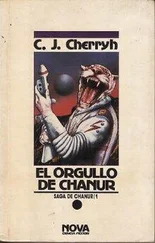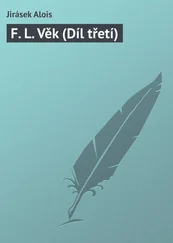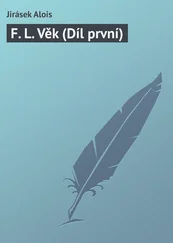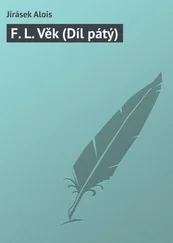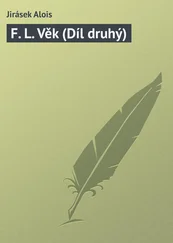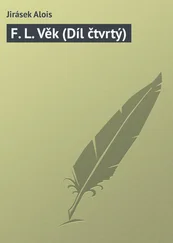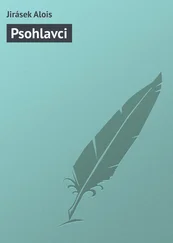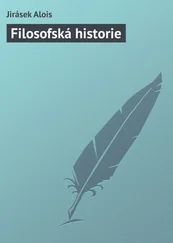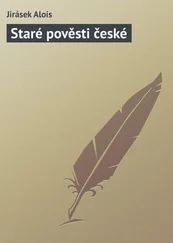C. Cherryh - Shon'jir
Здесь есть возможность читать онлайн «C. Cherryh - Shon'jir» весь текст электронной книги совершенно бесплатно (целиком полную версию без сокращений). В некоторых случаях можно слушать аудио, скачать через торрент в формате fb2 и присутствует краткое содержание. Жанр: romance_sf, на английском языке. Описание произведения, (предисловие) а так же отзывы посетителей доступны на портале библиотеки ЛибКат.
- Название:Shon'jir
- Автор:
- Жанр:
- Год:неизвестен
- ISBN:нет данных
- Рейтинг книги:3 / 5. Голосов: 1
-
Избранное:Добавить в избранное
- Отзывы:
-
Ваша оценка:
- 60
- 1
- 2
- 3
- 4
- 5
Shon'jir: краткое содержание, описание и аннотация
Предлагаем к чтению аннотацию, описание, краткое содержание или предисловие (зависит от того, что написал сам автор книги «Shon'jir»). Если вы не нашли необходимую информацию о книге — напишите в комментариях, мы постараемся отыскать её.
Shon'jir — читать онлайн бесплатно полную книгу (весь текст) целиком
Ниже представлен текст книги, разбитый по страницам. Система сохранения места последней прочитанной страницы, позволяет с удобством читать онлайн бесплатно книгу «Shon'jir», без необходимости каждый раз заново искать на чём Вы остановились. Поставьте закладку, и сможете в любой момент перейти на страницу, на которой закончили чтение.
Интервал:
Закладка:
Stavros himself had sent the SurTac out to learn Kesrith.
And Kesrith had nearly killed Duncan. Even the look of him was changed, reshaped by the forge of the Kesrithi desert. Something was gone, that had been there before Duncan had gone out into that wilderness his youth, perhaps; his humanity, possibly. He bore scars of it, face half-tanned from wearing mri veils in the searing sunlight, frown lines burned into the edges of his eyes, making them hard and different. He had come back with lungs racked and his breathing impaired from the thin air and caustic dust, with his body weight down by a considerable measure, and a strange, fragile tread, as if he mistrusted the very flooring. Days in sickbay had taken care of the physical injuries, restored him with all the array of advanced equipment available on the probe ship; but there was damage that would never be reached, that had stamped the look of the fanatic on the young SurTac.
The regul bai was correct when he perceived Sten Duncan as an enemy. The regul as a species had no more deadly enemy than this, save the mri themselves. Duncan hated, and Duncan knew the regul better than any human living save Stavros himself, for they two had come alone among regul, the first humans to breach the barriers to contact between regul and humanity, here on Kesrith.
And most particularly Duncan hated bai Hulagh Alagn-ni: Hulagh, who had done precisely what Duncan accused him of doing, killing the mri who had served regulkind as mercenaries, obliterating a sapient species. Hulagh had done it for desperate fear, and for greed, which were intertwined. But bai Hulagh was moved now by fear of disgrace among his own kind and by dawning hope of gain from humans; he had become stranded on the world he had hoped to plunder, among humans whom he had hoped to cheat and disgrace. And bai Hulagh thus became vulnerable and valuable.
The fact was that one could not, as Duncan tried to do, say regul, and comprehend in that word the reasons and actions of a given member of regulkind. A quasi-nation of merchants and scholars, the regul; but their docha, their associations of birth and trade, were each as independent as separate nations in most dealings. Hulagh was of doch Alagn, and Alagn, a new force in regul politics, had stopped the war. The employers of the mri mercenaries who had wrought such destruction in human space were doch Holn, the great rivals and enemies of Alagn.
Doch Holn had ceded Kesrith at war's end, compelled by the treaty; and in the passing of Kesrith to human control, Holn had fallen to Alagn. But Holn had had its revenge: it had cast Hulagh Alagn-ni into command of Kesrith ignorant of mri and of the nature of Kesrith. The weather had turned: Alagn had been faced with the collapse of their effort of evacuation and plunder of Kesrith; and confronted with incoming humans, Hulagh had panicked. In that panic, seeking to avert human wrath, Hulagh had done murder.
It was possible that by that act of murder, that annihilation of the mri, bai Hulagh had saved the lives of those incoming humans, all the personnel of Saber and Flower, Fox and Hannibal. It was possible that humanity guiltily owed bai Hulagh a debt of gratitude, for a sweeping action that human policy could never have taken.
Duncan, who believed in absolute justice, could not accept such a thought; but the truth was that doch Alagn and its ruler, Hulagh, were in every respect useful to Kesrith, most particularly in their reliance on humans and in their burning hatred for doch Holn, who had maneuvered them into this unhappy circumstance. For Duncan, as for the mri, there was only black and white, right and wrong. It was impossible to explain to Duncan that Alagn must be cultivated, strengthened, and aimed at Holn, a process too long-range and too little honest for the SurTac.
The mri, moreover, were Holn-hired and Holn-managed throughout their history and it was above all else necessary that what Hulagh had done on Kesrith be final: that the mri species be in fact obliterated, and that Holn not maintain in some secret place another force of the breed, those most efficient and skilled killers, for whom Duncan found such tender sympathy. The regul without the mri were incapable of war, constitutionally and physically incapable. With the mri, the regul were capable to any extent. If any mri survived, they could bear no love to doch Alagn for what Hulagh had done to their kind; and personal involvement of the mri in a war, for their own motives and not for hire, was a specter that hung over both Alagn and humanity.
The soup turned sour in Stavros' mouth while he contemplated what measures might eventually prove necessary with the remaining two mri: Duncan's mri. Duncan was a man of single sight and direct action, innocent in his way; and it was something that Stavros had no wish to do to destroy in the SurTac that which had made him at once a valued adviser and a reliable agent.
He loved Duncan as a son.
For one of his sons, he would have felt less remorse.
Chapter Two
THE ORDER went out in the evening. Duncan read and re-read the photocopy over a solitary supper in his quarters in the Nom, at a table littered with other notes, his handmade and carefully gathered materials.
Special liaison: that was the title that Stavros had chosen to ease his transfer into Flower's tight community. The order linked him to the governor's essentially civilian wing, and not to the military presence that orbited in conjunction with the station, and Duncan appreciated that distinction, that would find more grace with Flower's personnel. He was given certain authorities to investigate, but not to dispose of artifacts or records or persons: he could actually direct what lines investigations of others were to take: fullest cooperation in pursuing his research… that portion of the order began. He read that final section again and again, finding no exception in it, and he was amazed that Stavros had said it.
He began to wonder why, and found no answer.
Within the hour arrived a packet of documents not on film, and therefore not something meant to be fed into the Nom receptors, where regul might have access to it: it came hand-delivered. Duncan signed for it and settled with the several folders in his lap extensive files that seemed to comprise everything known and done in regard to the mri prisoners. Duncan read them, again and again, absorbing everything he could remotely comprehend.
Then followed messages, from one and another department within Flower from security, from biology, from Dr. Luiz, the white-haired chief of surgery who had cared for him during his own stay aboard Flower. Luiz message was warm: it was Luiz who had tacitly given him leave to conduct Ms daily visits aboard Flower, when his own treatments could as easily have been given in the Nom, far from the mri. It was Luiz who had kept the treatment of the mri as decent as it was. who had kept them alive when it was reckoned impossible; and this man Duncan trusted. From others there were more formal acknowledgments, coldness couched in courtesies.
The governor's appointee, bringing power to alter things dear to certain hearts: he began to reckon how the scientists saw him, an intruder who knew nothing about the researches and operations for which these civs had come so far to a frontier world. He did not find it surprising that he was resented. He wished that he had been given authority to alter the condition of the mri, and less authority to threaten other projects. The one he earnestly desired; the other he distrusted because it was excessive and unreasonable; and he did not know Stavros for an excessive man, and certainly not as a man who acted without reasons.
He was being aimed at someone or something: he began to fear that this was so. He had become convenient again for Stavros, a weapon to be used once more, in a new kind of warfare against some one of Stavros' enemies be it the regul, be it some contest of authority between civs and the governor's office, or designs yet more complex, involving all of them.
Читать дальшеИнтервал:
Закладка:
Похожие книги на «Shon'jir»
Представляем Вашему вниманию похожие книги на «Shon'jir» списком для выбора. Мы отобрали схожую по названию и смыслу литературу в надежде предоставить читателям больше вариантов отыскать новые, интересные, ещё непрочитанные произведения.
Обсуждение, отзывы о книге «Shon'jir» и просто собственные мнения читателей. Оставьте ваши комментарии, напишите, что Вы думаете о произведении, его смысле или главных героях. Укажите что конкретно понравилось, а что нет, и почему Вы так считаете.

